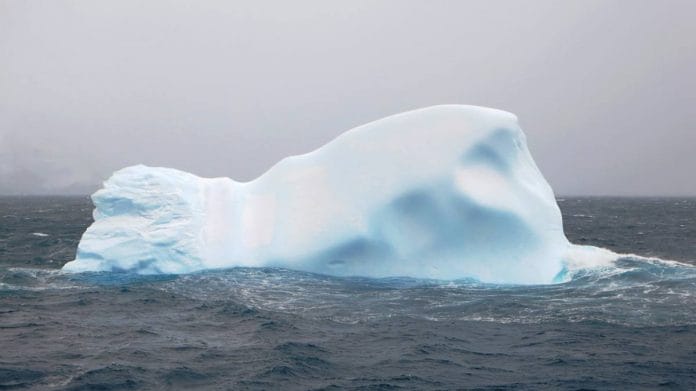There is now overwhelming evidence that the future economic and ecological prosperity of the planet depends on a healthy ocean. At the same time, the science is clear that we have pushed our planet, and especially the ocean, to the point where its ability to provide the sustainable resources and value that people need is in danger.
Happily, the last year has seen unprecedented commitments from governments, businesses, the United Nations and others to address these problems. The UN has proclaimed 2021-2030 as the Decade of Ocean Science for Sustainable Development to ensure that we have the knowledge we need to repair and restore the economic productivity of the ocean. Fourteen countries have joined together in a High Level Panel to find new solutions for a sustainable blue economy.
In December, the 14 world leaders that comprise the High Level Panel for a Sustainable Ocean Economy put forward a new ocean action agenda underpinned by sustainably managing 100% of national waters, ensuring the health and wealth of our ocean for future generations. The transformative agenda cited harnessing ocean science, technology and data as a key priority, calling for action to promote transparent and open sharing and accessibility of ocean data.
Turning commitments and ideas into the actions needed for a sustainable blue economy will require evidence and data.
Fortunately, dramatic leaps forward in science and technology mean we have more data than ever about the ocean. The key challenge now is organizing and making sense of the new explosion of ocean data and getting it into the hands of people who need it to make decisions. To solve this challenge, the Centre for the Fourth Industrial Revolution – Ocean and its partners at the World Economic Forum, the Ocean Panel, Microsoft, REV Ocean, and the World Resources Institute have joined forces to launch the Ocean Data Action Coalition (ODAC).
Data for a sustainable ocean economy
Our ability to measure and monitor the ocean is expanding exponentially, with the amount of ocean data collected accelerating thanks to the application of emerging technologies.
For instance, the World Ocean Database, the oldest and most global database of oceanographic information, has added more data in the last decade than in the entire last century. Microsatellites orbit the earth collecting detailed information on ocean patterns, underwater drones scan the sea floor, wave gliders and buoys measure conditions of the lower atmosphere, currents, water temperatures and salinity.
These innovations generate a tremendous amount of data that could help us manage climate change and its impact, reduce pollution, and drive industry transformation. For example, more, better and faster ocean data means we can better predict extreme weather and ocean events, track emissions to push for net zero shipping, optimise offshore floating wind for ‘green’ energy generation, track ocean pollution including plastics, and improve sustainable management of fisheries, to name just a few applications.
Despite the clear need for ocean data and the ever-expanding volume of data being produced, much data remains trapped in silos, locked away on hard drives or held back out of fear of how it might be used. Other data made freely available is fragmented and cannot easily be pulled together to allow for the kind of big data analysis that could unlock its power.
A collaborative vision for a digital ocean
To launch its work, ODAC is bringing together partners to implement a vision of a data-fuelled transformation in ocean management, in which a digitised ocean provides the common-ground to explore and test proposed plans for sustainable economic development. We call this digitized ocean the “Ocean Avatar”.
ODAC already has started to build the technical heart of the Ocean Avatar through the development of the Ocean Data Platform, powered by Cognite Data Fusion, and managed jointly with Microsoft. The Ocean Data Platform is an open platform that collates and visualises ocean data. This platform will form the bedrock of the ambitious Ocean Avatar – a virtual environment that integrates and visualises a wide range of data sources, to transform ocean data into knowledge and action, and ultimately sustainable ocean management worldwide. This Avatar will create a fully digital representation of the ocean, helping turn ocean data into digestible knowledge and action for innovation and sustainability.
Collaborate for action
Even before its official launch, ODAC received remarkable support from a variety of partners, but many more are needed. The ocean is massive (1.35 billion km3), constantly changing and globally connected. While a huge amount of data for the ocean already exists, that knowledge is highly concentrated in a few areas. Much of the ocean remains poorly studied, and many countries lack the technical and human capacity to collect, manage and use ocean data.
To create a world in which all stakeholders have access to critical ocean data, ODAC needs partners – heads of state that can join the example set by the Ocean Panel, industries that are willing to share data and technology, universities and research institutions that are can innovate to fill gaps and create new knowledge tools, and investors of all sorts that can provide the resources needed to build this digital ocean ecosystem.
Most importantly, the coalition needs visionary partners to step up and join in the leadership on the liberation of ocean data, by spearheading work streams, projects and initiatives that are needed to create the Ocean Avatar and other initiatives that we need to ensure that we make the most of science in planning for a sustainable and productive future ocean. We need every leader to help contribute to a vibrant, healthy and productive ocean.
Bjorn Tore Markussen, Chief Executive Officer, C4IR Ocean, Centre for the Fourth Industrial Revolution, Ocean and Kristian Teleki Director of the Friends of Ocean Action, World Economic Forum, and Director, Sustainable Ocean Initiative, World Resources Institute.
This article was originally published at the World Economic Forum.
Also read: Marine life is fleeing the equator to cooler waters. It could trigger mass extinction event






